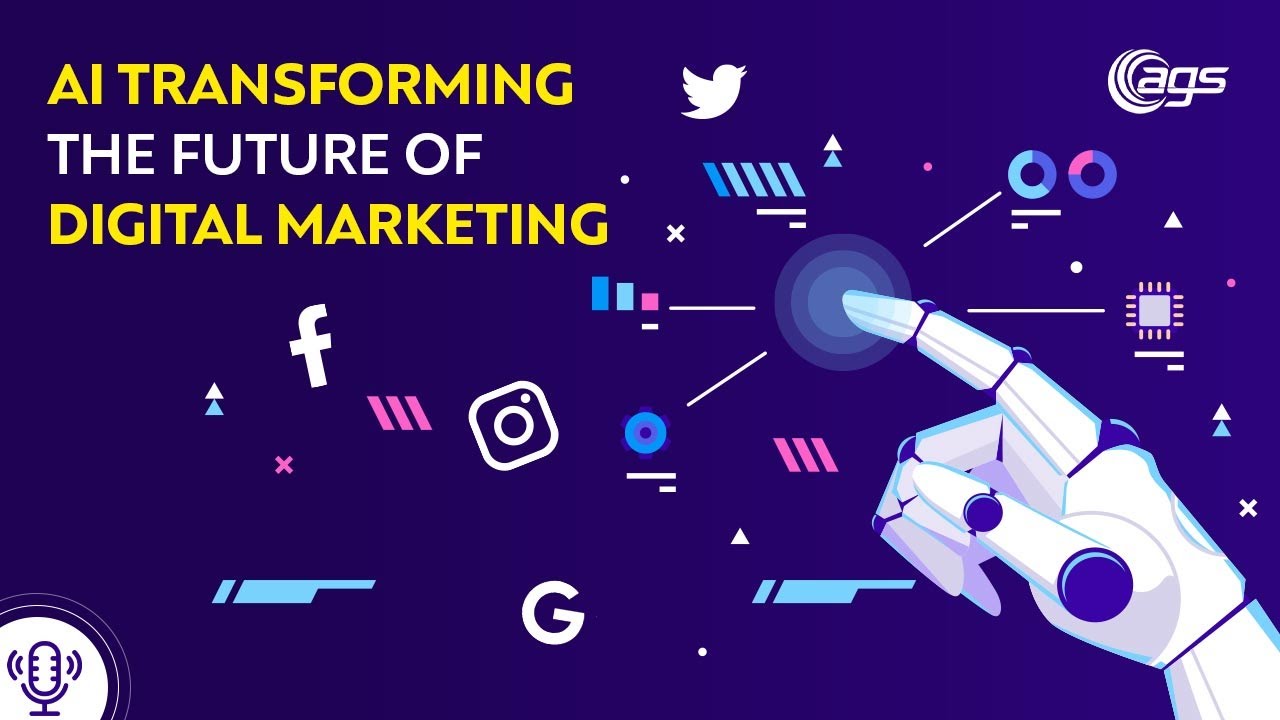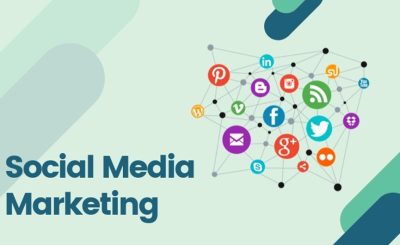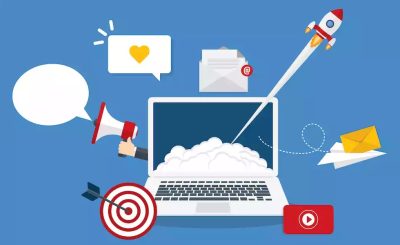“If you’re a digital marketer, AI is a game changer” – this what Ihor Lavrenenko thinks on artificial intelligence. Powered by machine learning, effective AI marketing tools help you create a more personalized consumer experience by analyzing large volumes of data to gain insights into your target audience.
Today’s consumers expect a high level of personalization in their digital marketing messages. With the ability to analyze a user’s purchase history, preferences, location, and past interactions with brands, AI can deliver a curated customer experience.
User personalization
While personalization has been around for a long time, AI is taking it to the next level, bringing customer satisfaction to a new level and delighting brands. This technology can make online shopping easier and more engaging for both customers and brands, delivering a better customer experience that increases revenue.
Personalization is the ability to deliver a personalized user journey that meets the needs of each individual customer. This includes generating a unique experience for first-time visitors, based on their interests and purchase history. It also helps retailers create a more streamlined search experience, enabling them to display relevant products even when customers aren’t typing exact keywords.
With so many customer data points available to brands, a granular level of personalization is expected by today’s consumers. It requires an extensive, data-driven approach that leverages a brand’s historical and real-time data to learn about a customer’s preferences on an individualized level.
It is a must-have for brands that want to stay competitive in the e-commerce market. Providing personalized experiences improves conversion rates and boosts marketing ROI, according to a McKinsey report. It also reduces customer acquisition costs by up to 50 percent and increases marketing spend efficiency by 30 percent, according to Evergage.
AI-powered solutions can automate customer journey analytics, identifying key stages in the buying process and providing insights based on past behavior. This makes it easier to customize content, such as webinars and case studies featuring relevant topics that customers have searched for in the past.
Using this information, AI can generate a highly personalized experience for each individual customer – ensuring that they’re greeted with relevant content at every stage of their journey. This can help retailers drive higher sales, increase repeat business and loyalty and decrease churn.
Another benefit of AI is that it can optimize ad campaigns, allowing marketers to reduce ad spend by selecting the most impactful ads for each consumer segment. This ensures that the ad content and creative are more effective at attracting a specific audience and generating high conversion rates.
AI-powered marketing platforms can run sophisticated digital experiments to measure the performance of different versions of a campaign, identifying the best performing elements. Then, these elements can be incorporated into future marketing efforts to maximize marketing effectiveness and ROI.
Digital marketing automation
As digital marketing continues to gain prominence, business owners are increasingly using automation tools to streamline their daily operations. These tools are often powered by AI and are helping businesses improve their marketing strategies while also saving them time and money.
One of the major ways that AI is changing digital marketing is by enabling marketers to make data-driven decisions. This technology allows them to make informed decisions about their campaigns based on insights from data sets such as search history and purchase behavior.
Another area where AI is changing digital marketing is by helping marketers to automate content creation. This technology is able to create SEO-friendly content that increases visibility on the internet. These tools can also provide valuable insights into search engine algorithms and trends that help digital marketers to create effective content.
Many of the top brands use AI to enhance customer experience through personalized content. For example, Dell uses behavior analysis to create ads based on customer web histories and shopping habits. This approach helps to increase click-through rates and conversions while reducing cost per lead.
Personalization is a huge trend in B2C marketing and is one of the most effective ways to increase brand loyalty and drive sales. This approach has helped a number of companies achieve great results in the digital space, including Spotify.
To implement personalized content, companies must have a large database of data about their customers. This data can include their past purchases, customer preferences, and current trends in the industry.
However, this data can be overwhelming for digital marketers to analyze. This is where AI comes in handy, as it can quickly scan through the huge amount of data and parse it down to its essential elements.
These tools can also glean insights from third-party data, such as weather and location information. This can help marketers understand the best times to promote their products or services, which is crucial to the success of their marketing efforts.
When looking to automate your marketing processes, it is important to consider the size of your company and what type of tool you are looking for. Choosing the right tool can save your company a lot of money in the long run and ensure that you get the most out of your investments.
Digital marketing analytics
As technology continues to grow, digital marketing strategies continue to evolve to keep up. Today, data is a vital aspect of marketing and AI has the ability to leverage this information for improved decision-making.
Marketers can use AI to personalize their customer experiences and improve overall marketing strategy ROI. This is done through a combination of machine learning, algorithms, models, and data sets.
This allows for more accurate positioning of campaigns to the right customers at the right time. This allows for the best return on investment possible, enabling brands to increase their customer base and grow revenue.
Some of the most common uses of AI include predictive analytics, content generation, and media buying. These tools help marketers gain insights into their target audience and determine which strategies will work best for them.
Another use of AI is churn prediction, which helps marketers re-engage disengaged customers and retain their loyalty. This is done through personalized email messages and other forms of digital communication.
A large number of companies are leveraging AI to provide an even better customer experience, including Spotify. This company combines data from its own service and data from social media to create customized playlists for users based on their preferences. It also uses data to understand genres and artists that are being talked about on social media to better understand its audiences.
Creating personalized content is also a key component of digital marketing, especially for the millennial demographic. In order to create content that appeals to this group, AI-powered tools can analyze audience data to determine which types of videos, blogs, and articles will be most effective.
The goal of a digital marketing campaign is to get people to know, like, and trust the brand. This can be done through a variety of methods, including social media, email, and other online advertising.
In addition to these tools, AI-powered customer service bots allow marketers to connect directly with customers in real time. These services use artificial intelligence to respond to questions in natural language and provide customer service in a human-like manner.
Using AI for reporting
AI is becoming a major part of marketing because it allows companies to tap into a plethora of data to understand their customers and provide them with personalized recommendations. This helps businesses grow and improve their bottom line.
In digital marketing, AI can be used to create content that is more relevant to specific audience segments, and it can also be used for automated email campaigns. For example, if an ad is targeting millennials, AI can help marketers create content that relates to their interests and preferences.
As more and more consumers use the Internet, brands are beginning to realize that their advertising needs to be targeted. This is done by using audience segmentation and behavioral targeting powered by AI to ensure that ads are only shown to those who have a genuine interest in a product or service.
This is why more and more brands are investing in ad targeting solutions that include AI and data science to target the right people, at the right time, with the right message. This enables advertisers to focus their budgets on ad copy that converts.
While there are many benefits to AI-powered marketing tools, it is important to note that these systems can’t always be fully trusted. As a result, it’s important to use them in accordance with industry standards and regulations.
One of the most important considerations to keep in mind when using AI-powered marketing tools is that they should be trained with accurate, timely and representative data. If they are not, their results may be skewed, and the value of the tool could decrease.
Similarly, if the data being used isn’t ethically gathered or in compliance with a standard (like GDPR), it can be problematic for companies. This could result in penalties and reputation damage.
In addition to these potential concerns, AI-powered marketing tools often require a lot of training to determine how to perform. This can take a long time, and it is imperative to have an expert oversee the process to make sure that the results are the best they can be. This is especially important in industries that are highly regulated and need to comply with strict guidelines.








